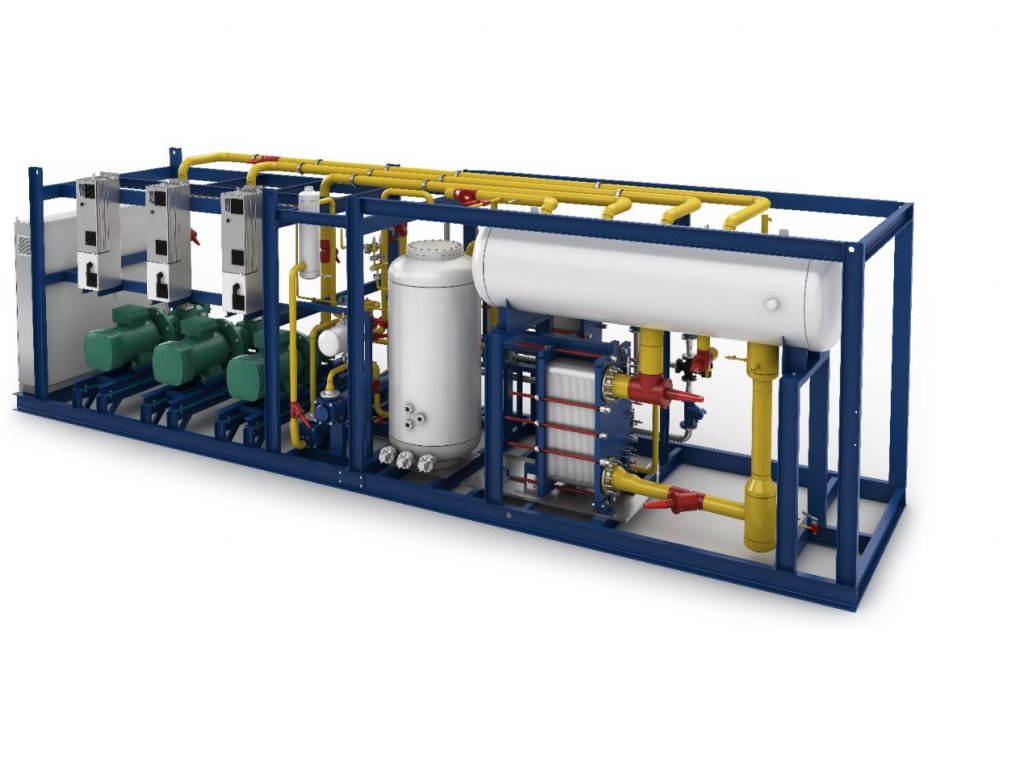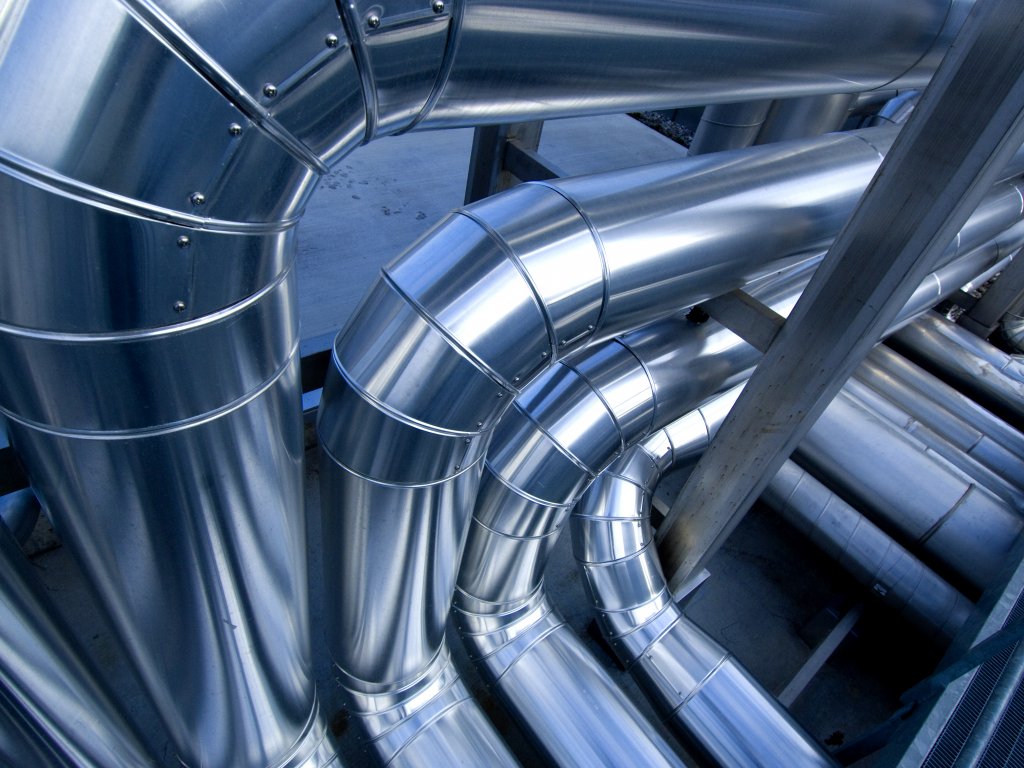

NH3 - R717.
Frigotherm Ferrari has been implementing NH3 systems for decades and therefore has the necessary know-how. Sustainability is also becoming increasingly important in our industry. Our goal is to create cooling systems that are safe, efficient, cost-effective, reliable, and environmentally friendly.
That is why we are increasingly using natural refrigerants such as NH3 (ammonia). Ammonia can be used in a flooded system in both thermosyphon and pump operation. Due to its properties, it is ideally suited for large and small commercial and industrial plants.
- Ozone Depletion Potential: 0
- Global Warming Potential: 0

CO2 - R744.
Highly efficient and environmentally friendly: CO2 refrigeration systems use carbon dioxide as a refrigerant and have several advantages over "conventional" systems. CO2 is a naturally occurring substance that behaves much more environmentally friendly in the atmosphere than many synthetic refrigerants.
In recent years, we have developed several industrial applications that use CO2 in both the subcritical and transcritical phases as a primary refrigerant (direct expansion or flooded cycles) and/or as a heat transfer fluid.
- Ozone Depletion Potential: 0
- Global Warming Potential: 1
Propane - R290
Along with ammonia and carbon dioxide, propane (C3H8) is a natural and, therefore, environmentally sound refrigerant. In the industry, it is known as R290 and is used in refrigerators and heat pumps. However, old systems may not simply be filled with propane. Besides, special safety regulations have to be met.
Propane has a low greenhouse effect and no ozone depletion potential, so it is an extremely sustainable solution, especially concerning the environment. However, the gas is highly flammable. Flammability requires charge limitation and the use of explosion-proof electrical components.
- Ozone Depletion Potential: 0
- Global Warming Potential: 3
Synthetic Refrigerants.
Synthetic refrigerants are based exclusively on the group of substances known as halogenated hydrocarbons. There is a great variety so that there are (almost) no limits to the choice. Almost because some synthetic refrigerants, which have too high an ozone depletion potential, are now no longer permitted. Here, again, we focus on sustainability.
Therefore, synthetic refrigerants are mainly used for commercial refrigeration systems where the refrigerant charge is manageable. Refrigeration systems with synthetic refrigerants are suitable for both standard and deep-freeze applications.
- Ozone Depletion Potential: 0 - 1
- Global Warming Potential: <150 - 2500
